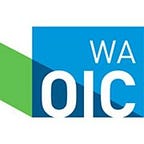What you can expect from your insurance company
In the aftermath of the 2023 wildfire season, the OIC’s Consumer Advocacy Program representatives have been fielding calls from consumers experiencing issues with their insurance company during the claims process.
The state has a set of expectations, monitored by Insurance Commissioner Mike Kreidler’s office, for communications standards between insurance companies and policyholders.
Here’s what you can expect, from a communications standpoint, after you file a claim.
- The insurance company will acknowledge your claim within 10 business days.
- If your claim is paid within 10 days, that counts as a response.
- If they acknowledge your claim but it’s not in writing, they must make a note of the acknowledgement in your claim file describing how it happened.
- For any other pertinent communications to your insurance company, where a response is a reasonable expectation, the company must reply within 10 working days.
- Once the insurance company has been notified of a claim, they have to provide you with all the necessary forms and instructions, and help filling them out, so you can meet your end of the policy’s requirements.
The state also has a list of unfair claims settlement practices your insurance company must avoid:
- The company can’t misrepresent pertinent facts.
- The company must follow the communications standards mentioned above.
- The company must follow reasonable time standards for claim investigations.
- The company can’t refuse to pay a claim without conducting a reasonable investigation.
- The company can’t affirm or deny coverage after you’ve provided proof of loss documentation.
- The company must try to produce prompt, fair settlements when liability is clear. This includes prompt payment to third parties in clear liability situations. If two insurers share liability, they should arrange appropriate payment and determine the share of liability between themselves.
- The company can’t ask you to go through litigation, arbitration, or appraisal to recover money due under your policy by offering you less than the amount ultimately recovered in those proceedings.
- The company can’t try to settle a claim for less than what they should have expected, based on the advertising material that came with their application.
- The company can’t pay a claim without including a statement explaining the coverage under which it was paid.
- The company can’t try to make you accept a lower settlement by claiming they have a policy of appealing awards that favor the claimant.
- The company can’t delay your claim by requiring you, or your doctor, submit a preliminary claim report and then additional reports with the same information.
- The company can’t delay a claim settlement with clear liability to influence additional settlements under your coverage.
- The company must explain a claim denial or their offer of a compromise settlement.
- The company can’t discriminate against your because you’re represented by a public adjuster.
- The company must honor drafts given in claim settlements within three working days, unless they provide a valid reason.
- The company must adopt reasonable standards for paying a claim after the obligation to pay has been established — typically 15 working days.
- The company can’t use appraisers from outside the loss area, which could delay your appraisal or add to your claim costs, unless there’s a unique situation where local appraisers aren’t available.
- The company must try to settle a claim before exercising its right to an appraisal.
- If you’re represented by an attorney, the company can’t negotiate or settle your claim without the attorney’s consent.
Read more about the OIC’s tips and advice for consumers impacted by wildfires.
